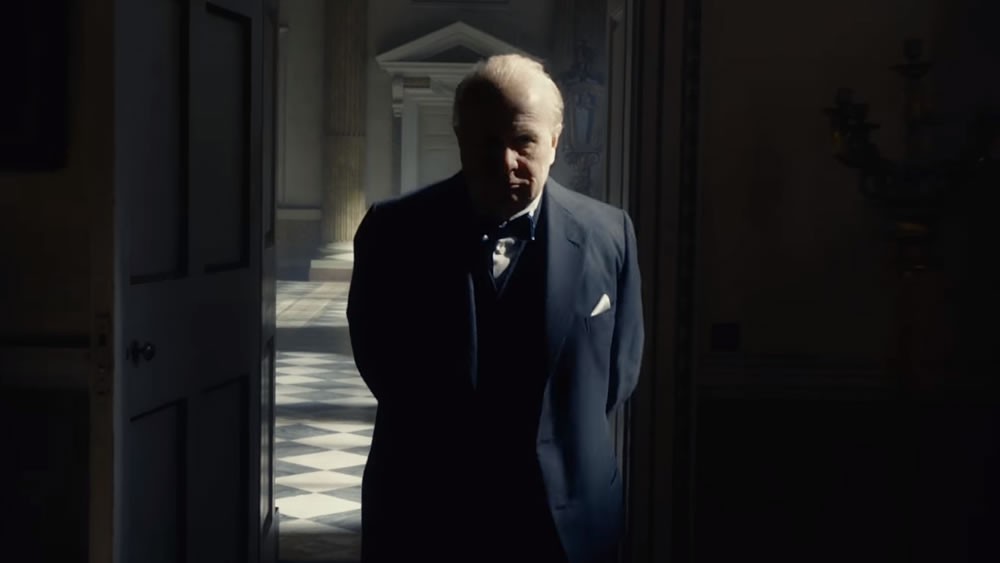“We are masters of the unsaid words, but slaves of those we let slip out.” – Winston Churchill
No, this is not about the Oscar-winning movie examining Winston Churchill’s hard choices that helped save the world. It’s about the darkest choices ever made by a U.S. president.

Last week, National Security Agency Chief Admiral Mike Rogers told the Senate Armed Services committee that President Trump has not ordered the NSA to take any action against Russia’s on-going attempts at cyber-warfare.
“President Putin has clearly come to the conclusion that there’s little price to pay and that therefore ‘I can continue this activity,’ ” Rogers told the committee. “Clearly what we have done hasn’t been enough.”
The New York Times reported (Feb. 27), that when Rogers was asked “whether he had the authority and the ability to disrupt the Russian attacks ‘where they originate,’ Admiral Rogers replied, ‘I don’t have the day-to-day authority to do that.’
“ ‘So you would need, basically, to be directed by the president,’ Senator Jack Reed of Rhode Island, asked. “Have you been directed to do so?”
“ ‘No, I have not,’ Admiral Rogers said.”
Two weeks earlier, the heads of five intelligence agencies testified before the Senate Intelligence Committee with similar responses:
“FBI Director Christopher Wray,” The Hill reported (Feb. 13), “said President Trump hasn’t directed him to stop Russian efforts to interfere in this year’s midterm elections.
“ ‘We’re taking a lot of specific efforts to blunt Russian efforts,’ Wray said when Sen. Jack Reed asked if he’d been directed by Trump to do so.
“ ‘As directed by the president?’ Reed interjected.
“ ‘Not as specifically directed by the president,’ Wray responded.
“Wray,” The Hill adds, “along with CIA Director Mike Pompeo, National Security Agency Director Adm. Mike Rogers and Director of National Intelligence Dan Coats — spoke at a Senate Intelligence Committee hearing about threats to U.S. national security.
“Reed asked each official whether they had received specific direction from Trump to blunt Russian meddling efforts during future elections. The officials indicated they had not received that directive from the president…”
“ ‘We expect Russia to continue using propaganda, social media, false-flag personas, sympathetic spokespeople and other means of influence to try to exacerbate social and political fissures in the United States,’ Coats told the Senate Intelligence Committee at its annual hearing on worldwide threats,” The Times reported (Feb. 13).
And Donald Trump?
“Trump has been skeptical,” CNN writes (Feb. 14), “about the intelligence assessment that Russia meddled ever since he was first briefed on the issue during the presidential transition. But that skepticism has endured even after Trump hand-selected his own intel chiefs and they reiterated the conclusions of their predecessors.”
After Deputy Attorney General Rod Rosenstein read an indictment which discussed sources and means that 13 Russians and three Russian companies took to meddle in 2016, Trump’s response:
“Deputy A.G. Rod Rosenstein stated at the News Conference: “There is no allegation in the indictment that any American was a knowing participant in this illegal activity. There is no allegation in the indictment that the charged conduct altered the outcome of the 2016 election.’ – Feb. 17, 2018
“Mr. Coats,” The Times adds, “called Moscow’s meddling ‘pervasive.’
“ ‘The Russians have a strategy that goes well beyond what is happening in the United States,’ he said. ‘While they have historically tried to do these types of things, clearly in 2016 they upped their game. They took advantage, a sophisticated advantage of social media. They are doing that not only in the United States but doing it throughout Europe and perhaps elsewhere.’ ”
As for the president?
– Trump doesn’t implement sanctions against Russia voted on by Congress.
– Trump believes Putin over his own intelligence agencies.
– Trump does not give explicit orders to intelligence agencies to go after Russia for continuing to spread false information.
In May, 2017, “Trump revealed highly classified information to the Russian foreign minister and ambassador in a White House meeting last week, according to current and former U.S. officials, who said Trump’s disclosures jeopardized a critical source of intelligence on the Islamic State,” The Washington Post wrote (May 15, 2017).
This is the same Trump who, at rally after rally, called Hillary Clinton’s use of a private e-mail server “criminal,” smiling while his audience chanted, “Lock Her up!”
“Retired four-star Army general Barry McCaffrey said the American people — and Congress especially — should be alarmed,” The Washington Post writes (Mar. 3).
“Trump’s judgment is fundamentally flawed,” McCaffrey said, “and the more pressure put on him and the more isolated he becomes, I think, his ability to do harm is going to increase.”
Comments










